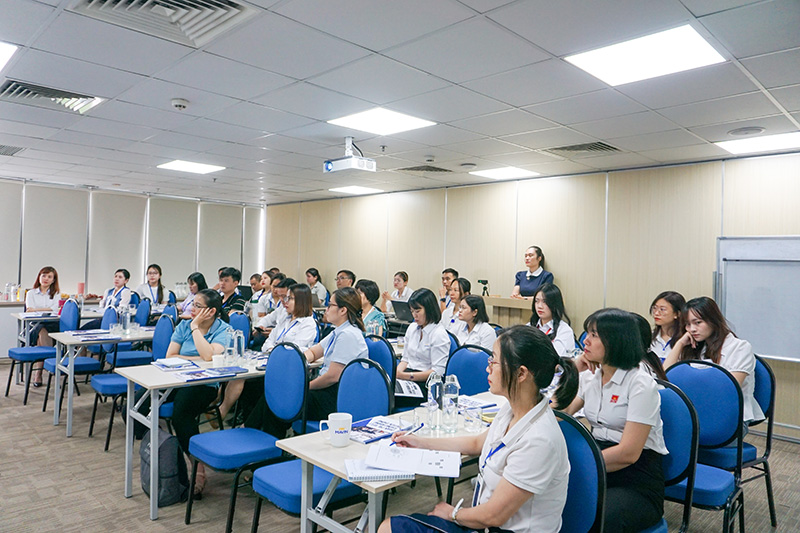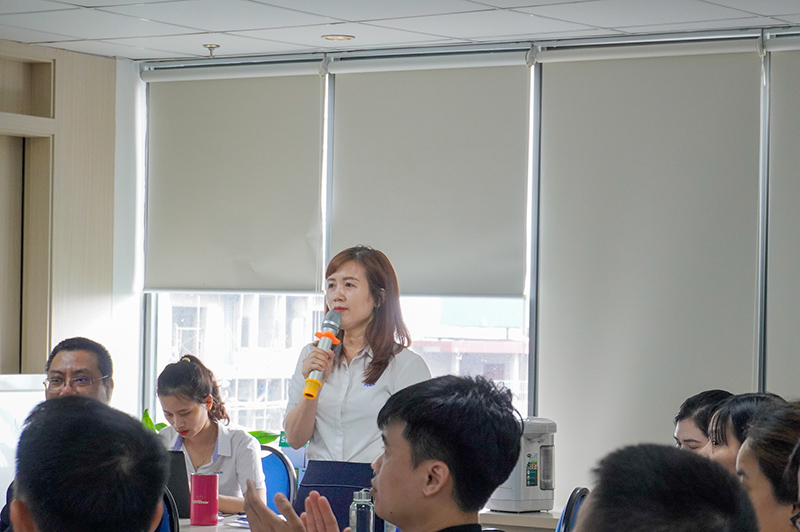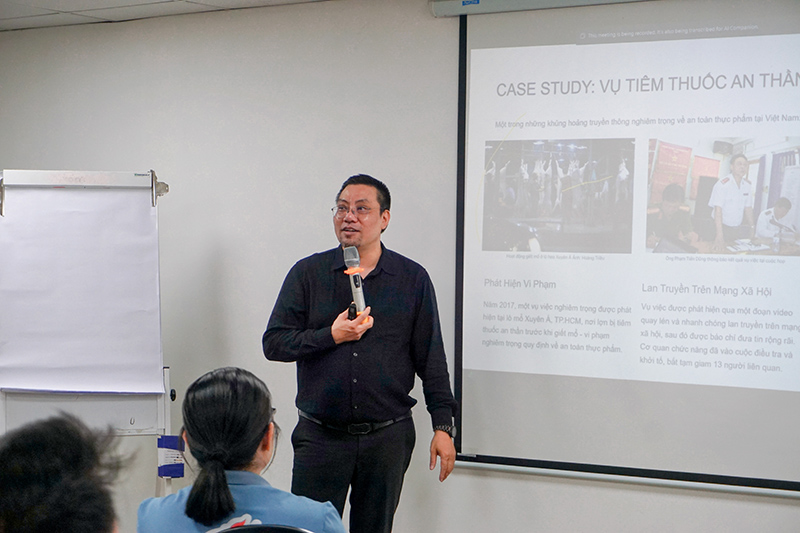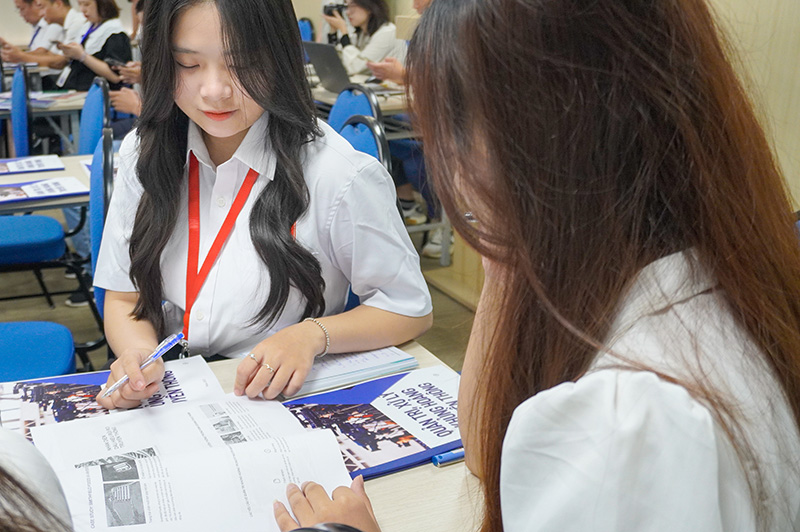In the context of rapidly developing digital media, where information spreads at lightning speed and public awareness of ESG, transparency, and corporate responsibility continues to rise, preventing communication crises has become an essential requirement—especially for businesses in the agriculture and food sectors.
Recognizing this need, on June 18, 2025, in Hanoi, Mavin Group held a training program titled “Crisis Communication Management Skills” for nearly 200 frontline staff from its Feed, Foods, and Pigfarm sectors. The session was led by a veteran expert in communication consulting and crisis response in Vietnam.

This initiative represents a continued step in Mavin’s internal capability-building roadmap for communication risk management, following the first program held in 2022 for its farm management team. The 2025 edition delivered more updated and practical content, including early crisis signal detection, appropriate response when approached by journalists, social media handling during reputational risks, and internal coordination procedures in sensitive situations.
The course combined in-person and online formats, attracting nearly 200 employees from Mavin's feed production, livestock, food processing, and subsidiary companies. These are frontline staff members—those who engage directly with customers, partners, local communities, and the media.
At the opening session, a representative from Mavin Group’s Executive Board emphasized:
“Communication is not solely the responsibility of the Communications Department. Every employee who interacts with customers, partners, communities, or the press is a representative of the Mavin brand. Training is not just about responding—it’s about proactively protecting the brand and protecting each of us.”

Strategic Training – Risk Awareness – Proactive Response in the Digital Age
Under the guidance of communications expert Mr. Nguyễn Đình Thành, the course provided a comprehensive overview of the current media landscape—where opportunities and risks coexist at every moment. The curriculum ranged from foundational topics such as crisis identification, root cause classification, and impact assessment in livestock and food businesses, to techniques for setting up emergency communication channels, effective public speaking during crises, and practical steps for building a crisis response plan.

Participants also engaged in real-world scenario discussions and practiced urgent response strategies during the “golden hour” of a crisis. These exercises aimed to shift mindsets from passive reaction to proactive risk management.

This training program is part of Mavin’s broader strategy to enhance enterprise-wide risk management capabilities and build a responsive and professional crisis response system across its subsidiaries. It also reflects Mavin’s strong commitment to developing a high-quality workforce, ready to adapt and uphold brand integrity amid the challenges of the digital media era.